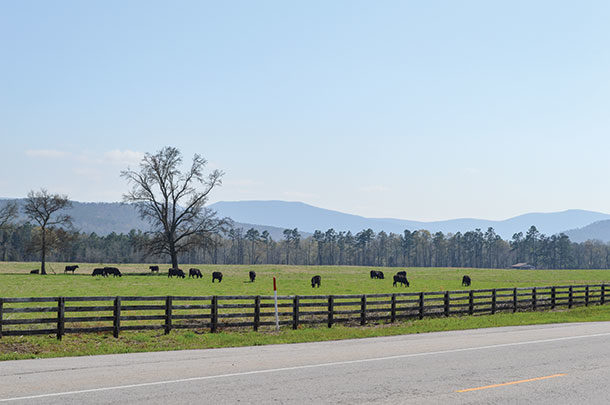This has been Texas’ policy since 1893, when the Texas Supreme Court held that, “It is the right of every owner of domestic animals in this state … to allow them to run large.”
An open range policy generally means landowners do not have a duty to prevent their animals from roaming at large by keeping them fenced in, and landowners also do not have a duty to prevent their animals from roaming onto most roadways.
This policy was affirmed in 1999 when the Texas Supreme Court refused to impose a duty on a horse owner to prevent the horse from roaming onto a roadway. By extension, this meant the horse owner was not liable for damages caused when a motorist collided with the horse on a farm-to-market road.
This reflects the general open range policy, but there are some exceptions. For instance, in Texas, the state legislature has passed laws that prohibit landowners from “knowingly permitting” their livestock to roam along state and U.S. highways.
Further, even in an open range area, a landowner may still be liable for damages if they purposefully drive their livestock on another’s land, if an animal roams on land that has a sufficient fence to keep the animal out or if the animal is known to be diseased, breachy or aggressive. In essence, an open range policy cannot be used as a blanket protection against liability for livestock owners.
Livestock owners should also be aware that even in states that have a general open range policy, there may be areas that are closed range. Since 1876, Texas has allowed counties to pass stock laws, which allow the county to hold an election to modify the state’s open range policy by creating restrictions on animals roaming at large in that county. Closed range is often referred to as a “fence in” requirement.
County stock laws vary depending on what restrictions a particular county has put in place. As an example, stock laws may only apply to certain animals and may only prevent animals from roaming on roadways. But these laws can extend so broadly as to require landowners to sufficiently fence in their animals and to face liability if they “permit” their animals to roam beyond their property.
The subject of what it means to permit an animal to roam at large has faced some debate, but it is currently understood to mean that a landowner cannot expressly or affirmatively allow the animal to roam beyond the property’s boundaries. Closed range areas create a lot more liability for livestock owners. In closed range areas, livestock owners have a duty to prevent their animals from roaming at large and may face liability for damages their animals cause if a court finds the landowner permitted the animal to roam at large.
Unfortunately, there is not a readily available list of which Texas counties are open or closed range. Accordingly, landowners should inquire with their county clerk or sheriff’s office to see if any stock laws (or other closed-range-type provisions) are in effect in their counties. If such is the case, landowners will need to be aware of what types of animals are prohibited from roaming at large and take precautions to be sure their livestock are adequately fenced in on their property.
It is in landowners’ best interests to know what the applicable open and closed range policies are in their state. This will help landowners avoid facing liability from their animals roaming at large in areas prohibited by law. It is also in the landowners’ best interests to build, check and maintain good fences around their property no matter what the classification is. This will prevent animals owned by neighboring landowners from roaming onto their property in open range areas and will prevent their livestock from potentially roaming into areas that may be closed range.
Landowners should also try and stay up-to-date with the development of open and closed range laws in their states and counties so they are informed of any changes that may create new liability exposure for them or lower a liability threshold related to other landowners’ livestock that may roam on their property and potentially cause damage. ![]()
PHOTO: Know your state law regarding open range and liability of cattle on nearby roads. Then use your fence to follow it. Getty Images.
Chandler Schmitz is a recent graduate of Texas A&M University School of Law.
References omitted but are available upon request. Click here to email an editor.

-
Jim D. Bradbury
- Owning Partner
- James D. Bradbury PLLC
- Email Jim D. Bradbury










